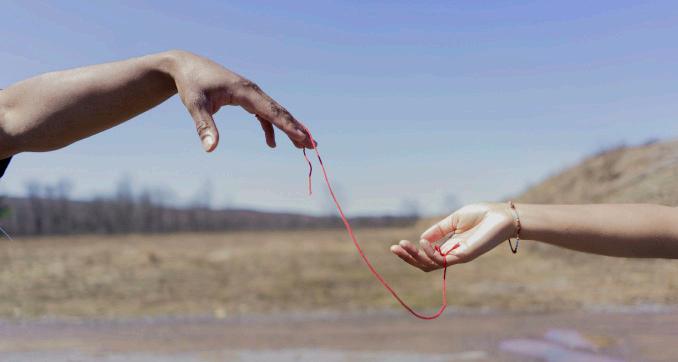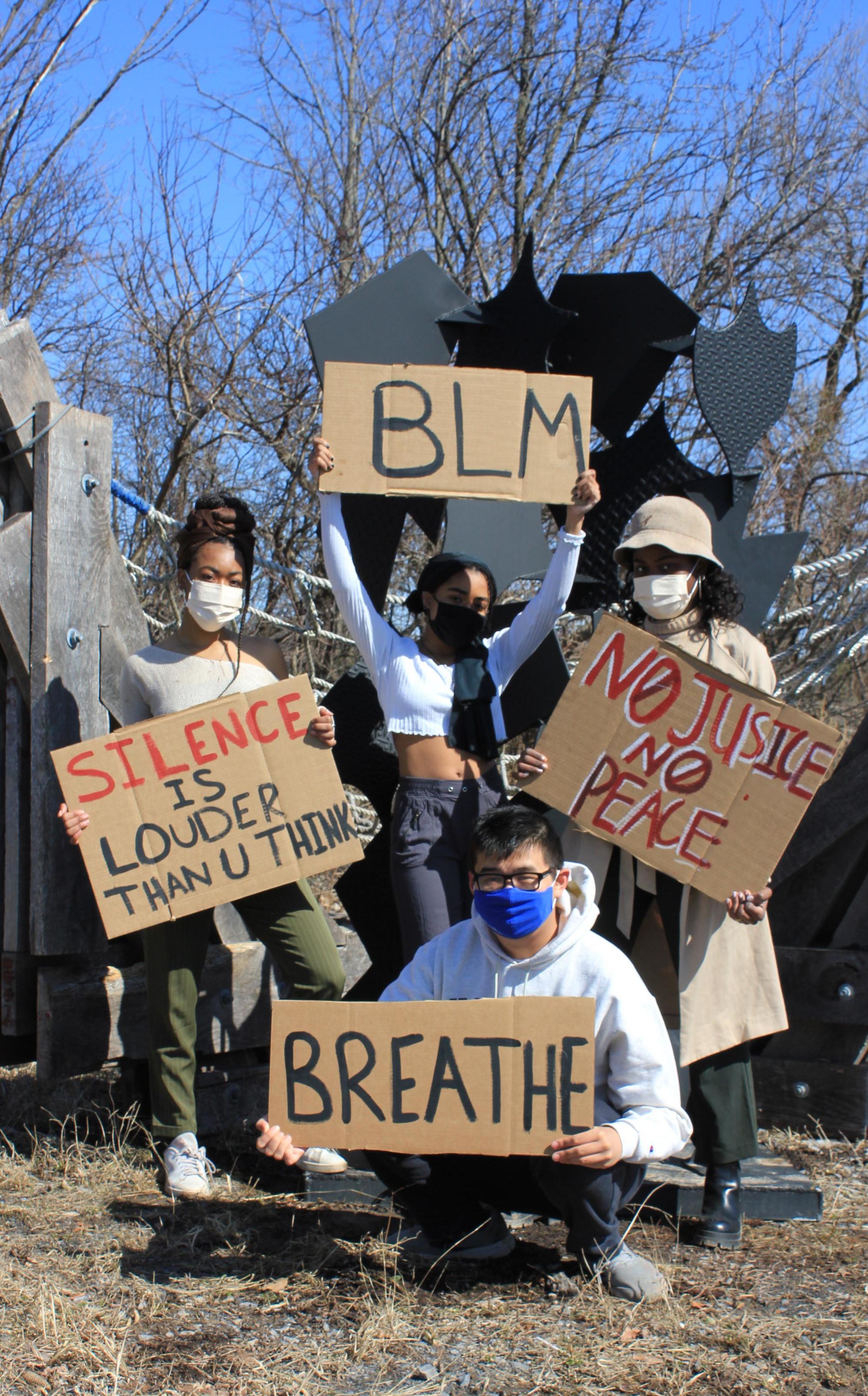
4 minute read
An Unprecedented Year
An Unprecedented Year: Reflecting with SA President Saphire Ruiz
By Shania Kuo
Advertisement
Attending college a year into a pandemic, along with isolation, piles of assignments, and social unrest, has proved to be a stressful breeding ground for students. The Student Assembly’s role has become absolutely necessary in advocating for a healthy environment for students to thrive in. Serving as a liaison between students and the administration, Student Assembly President Saphire Ruiz ‘22 has been hard at work, advocating for their goals for a culture prioritizing mental health care and support amongst the student body. However, serving as our liaison, doesn’t mean that the goals of the administration and the Student Assembly align.
One such example is the Audit and Action Council. Saphire heavily advocated for the Council, which has been a growing topic of contention and confusion. Saphire originally worked with the Advisory Council, but grew frustrated with the council’s lack of student representation and the usage of BLSU’s name without prior discussion.What resulted was the Audit and Action Council, created in response to disheartened sentiments of students, faculty, staff, and alumni, especially with how the Advisory Council had taken on a dismissive attitude towards the student concern. While the Audit and Action Council has not communicated with the Advisory Council as a whole since their refusal to heed the Audit and Action Council’srequests, the Audit and Action Council has been communicating with individuals. Saphire acknowledged that, “One thing we always understood is that our issue is not with the people on the council itself but rather the creation and the execution of the Council.”
The refusal to legitimize the Audit and Action Council runs deeper than simple dismissal of student-created challenging organization. This isn’t Saphire’s first time working with the administration, and they believe, at the core, there is a level of disregard and disrespect for students. In Saphire’s words: “Unfortunately, what I have found is that it feels very much like our concerns are never heard or that they are written off. I think a really big thing we struggle with is literally just getting responses… Typically what happens is that we get two or three sentences or maybe paragraphs to pages and pages of documents we sent with no kind of details or commitments.” This isn’t limited to Saphire’s presidency. This has been an issue relevant to many Student Assembly Presidents’ terms, and is an issue persisting throughout higher education as a whole. Student concerns are left unheard and then interrogated when pushed. The rhetoric of “Why say anything when no one listens?” persists among students, and the dismissive attitudes of administration is an important factor. In the face of disrespect and disregard, it becomes extremely difficult for students to continue to advocate for themselves.
Overtly advocating for their passion puts students at risk for internalization of fault when they are ignored. The hopeless situation becomes a tool to create trauma within students. This goes beyond just a Student Assembly or Hamilton issue.
Students advocate for social justice because they’re passionate about fighting for it. Students value diversity, mental health, and equal opportunity because it comes from their realities and experiences. The administration's lack of action is harmful because it dismisses the realities of students, questioning their realities. The administration has good intentions, but good intentions always have the capacity to create harmful actions. For Sapphire, grounding themselves is key to being able to push through, reminding themself that they’re doing this for their small community at Hamilton.
As Student President, Saphire found that many different community members share their sentiments. They reached out to communities they normally would not interact with, such as athletes and Greek life, who had many of the same concerns. It was exciting for Saphire to hear about what these cohorts were doing in their own communities to work on the same projects such as racial justice, especially since they had been unaware of their work. Since communities tend to stick to homogenous circles, being Student Assembly President allowed Saphire to break through these social barriers and hear from the broader Hamilton student body. In working with the Hamilton community, it’s easy to feel alone working as our representative. However, Saphire’s strives for unity within Hamilton's campus. They work towards creating relationships that will help Hamilton students connect with one another, and understand where student advocacy efforts are being applied.
It is their hope for the community that draws Saphire’s concern for Hamilton's culture of hyper productivity. Students across the world have accepted that working until you drop is a part of college culture. The idea of working until you have nothing left has become such a normalized, undisputed fact, that no one really disagrees. Saphire leaves this message for the Hamilton community:
“You are not your grades or your level of productivity. This is a completely ableist, capitalist, and racist society, and we aren’t meant to live the way we live: constantly under stress, anxiety, and depression. Again, easier said than done, but I encourage taking time to rest, whatever that means for you.”
COVID-19 has shaken the world. The consequences are going to continue, and “returning to normal” can’t be an option given the social unrest. Students are going to be entering a post-COVID reality after graduating, and it’s important to remember something that Saphire emphasized: "We don’t have time anymore. Time and time again in every generation, people are told to wait and that things will get better. They haven’t. Every issue COVID has exacerbated is what has been consistent with U.S. history. Youths have been and are going to continue to be pivotal in spurring and making change.
There is no time left for otherwise.









